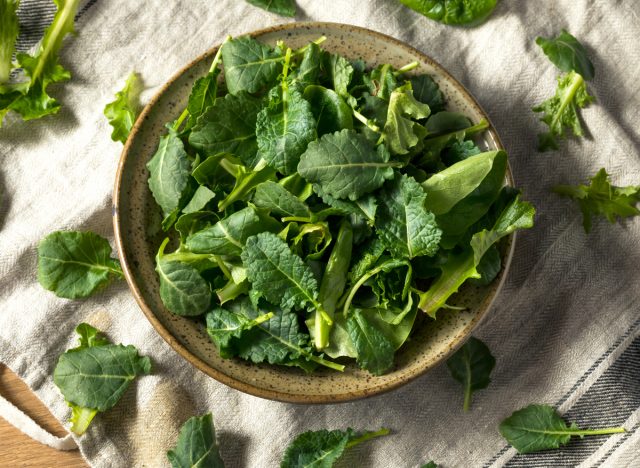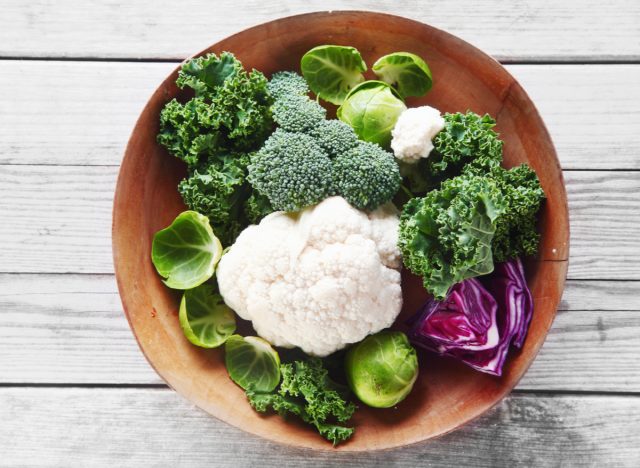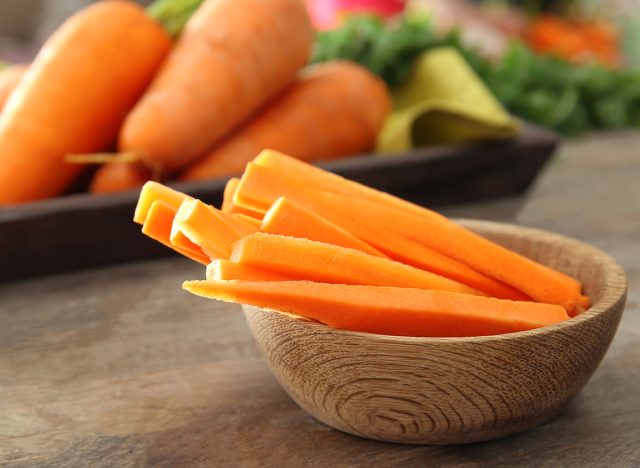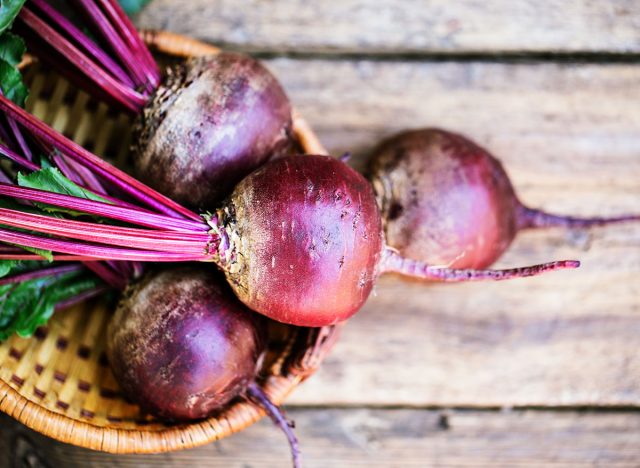There are plenty of activities that certainly help with boosting brain health—like learning new skills, reading, engaging in physical activity, and getting enough sleep. However, your diet is also a key element for keeping your brain “young” as you age, and including the right kind of vegetables on your plate will only help with keeping your brain smarter and sharper.
Amy Goodson, MS, RD, CSSD, LD, author of The Sports Nutrition Playbook and a member of our medical expert board shared her insight on the types of vegetables to include in your diet in order to keep your brain young. Here are the veggies to grab on your next grocery run, and for even more healthy eating tips for your brain, check out The #1 Best Nut To Keep Your Brain Sharp, Says Dietitian.


“Green leafy vegetables including kale, spinach, broccoli, and collard greens, are rich in vitamin K, folate, beta-carotene, and lutein, which all play an important role in brain health,” says Goodson. “These vegetables are high in antioxidants, which help fight cellular damage in our body. The less damage done to our cells, ultimately the healthier and stronger are bodies stay.”
One study published in Neurology suggests that consuming one serving of leafy green vegetables a day can help slow cognitive decline with aging. Here are the 5 Best Leafy Greens You Should Be Eating Every Day, Say Dietitians.


Goodson suggests broccoli, which is one of the many cruciferous vegetables that can positively benefit your brain health. According to Northwestern Medicine, cruciferous vegetables are rich in vitamin K, which has been linked to a sharper memory. These types of vegetables—including broccoli, Brussels sprouts, cauliflower, bok choy, and more—are also a powerful source of folate, which is important for cognitive function and an aging brain.


“Sweet potatoes and other orange veggies such as carrots, red peppers, and butternut squash, are great sources of beta-carotene,” says Goodson. “Beta-carotene has been linked to improved cognitive health due to its antioxidant effects. Remember, antioxidants are the good guys that fight the bad guys (free radicals) that cause damage to our cells.”
READ RELATED: 5 Surprising Effects of Eating Tomatoes, Say Dietitians
Beta-carotene is even boasted as a potentially useful treatment for neurological diseases such as Alzheimer’s, according to a Biomolecules study.


“Beets are a rich source of nitrates and folic acid, which both contribute to optimal brain health,” says Goodson. “Nitrates increase blood flow to the brain, which improves cognitive function. Folic acid, also known as B9, has been shown to help reduce the risk of several neurological and psychological disorders such as dementia, Alzheimer’s, and depression.”
Reap the benefits of beets by tossing up this Savory Roasted Beet Salad with Barley, or blending up this Immune-Boosting Blood Orange Beet Smoothie.
You can’t go wrong with eating vegetables throughout the day, so grab one or two of the veggies mentioned above and throw them in your next meal to help care for your brain health!
Source:






